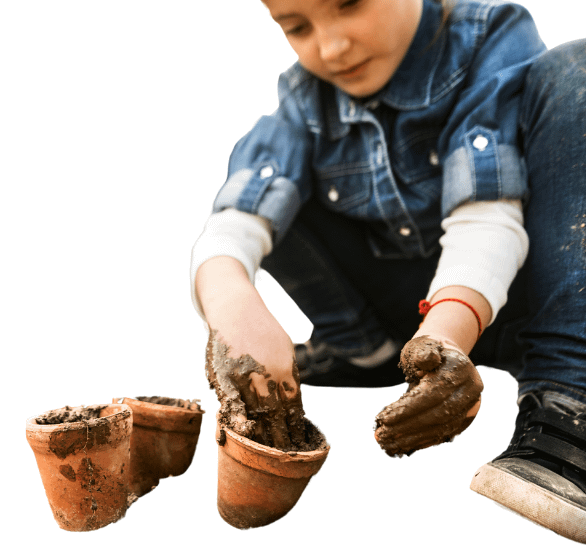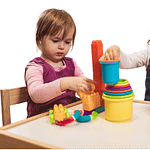National Children’s Gardening Week is an annual event in the UK that aims to inspire a love for gardening in children. It encourages them to get outdoors, connect with nature, and learn about where their food comes from.
In 2025, National Children’s Gardening Week will take place from Saturday, May 24th to Sunday, June 1st.
This timing coincides with the May half-term holiday in many parts of the UK, providing an excellent opportunity for families and schools to participate. The event was started in 2015 by radio presenter and gardening expert Neil Grant.
Aims of National Children’s Gardening Week:
- Inspire Curiosity: To spark children’s interest in the natural world through hands-on gardening activities.
- Promote Wellbeing: To highlight the physical and mental health benefits of spending time outdoors and engaging with nature.
- Environmental Awareness: To teach children about sustainability, biodiversity, and the importance of caring for the environment.
- Skill Development: To help children develop practical skills, responsibility, patience, and teamwork.
- Family Engagement: To encourage families to spend quality time together in the garden.
Benefits of Gardening for Children:
- Develops Motor Skills: Activities like digging, planting small seeds, and watering help refine both fine and gross motor skills.
- Encourages Healthy Eating: Children are often more willing to try fruits and vegetables they have grown themselves, fostering healthier eating habits.
- Improves Cognitive Abilities and Social Skills: Gardening teaches patience, listening skills, and the ability to follow instructions. When done in groups, it also enhances interpersonal skills and teamwork.
- Minimizes Stress: Connecting with nature and being in the fresh air can be relaxing and help reduce stress in children.
- Improves STEM Skills: Gardening involves elements of science (plant life cycles, soil composition), technology (using tools), engineering (building raised beds), and mathematics (measuring, counting seeds).
- Provides Physical Activity: Gardening tasks like digging, lifting, and bending are good forms of exercise.
- Enhances Sensory Development: Children engage all their senses in the garden – touch (soil, leaves), smell (flowers, herbs), sight (colors, growth), sound (birds, rustling leaves), and taste (homegrown produce).
- Fosters a Sense of Responsibility and Achievement: Caring for a plant and watching it grow gives children a sense of accomplishment and responsibility.
- Increases Environmental Awareness: Children learn about ecosystems, the importance of pollinators, and how plants contribute to the environment.
Ideas for Activities During Children’s Gardening Week:
- Plant a Mini Garden: Use small containers, window boxes, or even old household items like wellington boots or teapots to create miniature gardens. Children can grow flowers, herbs, or small vegetables like cress or radishes, which show quick results.
- Create a Rainbow Garden: Plant flowers of different colors to make a vibrant rainbow display.
- Make Cress Heads: Decorate yoghurt pots with faces, fill them with damp cotton wool, and sprinkle cress seeds on top. The cress will grow like “hair.”
- Build a Bug Hotel: Use natural materials like twigs, leaves, and hollow stems to create a habitat for insects.
- Go on a Garden Treasure Hunt: Create a list of natural items for children to find in the garden or a local park.
- Make Seed Bombs: Mix wildflower seeds with clay and compost, roll them into balls, and let them dry. These can then be scattered to create new wildflower patches.
- Press Flowers: Collect flowers and leaves and press them between heavy books to create beautiful artwork.
- Decorate Plant Pots: Let children paint or decorate terracotta pots before planting.
- Grow Sunflowers: Hold a competition to see who can grow the tallest sunflower.
- Make a Compost Bin: Teach children about recycling organic waste by creating a small compost bin.
- Plant Vegetables: Start with easy-to-grow vegetables like carrots, lettuce, or beans.
- Create a Butterfly Garden: Plant flowers that attract butterflies, such as lavender, buddleia, and verbena.
- Have a Garden Story Time: Read books about nature and gardening outdoors.
- Make Birdseed Shapes: Mix birdseed with gelatine and press into cookie cutters to create edible treats for birds.
Many garden centers and organizations across the UK often host special events and activities during National Children’s Gardening Week. Keep an eye out for local initiatives to get involved in!





